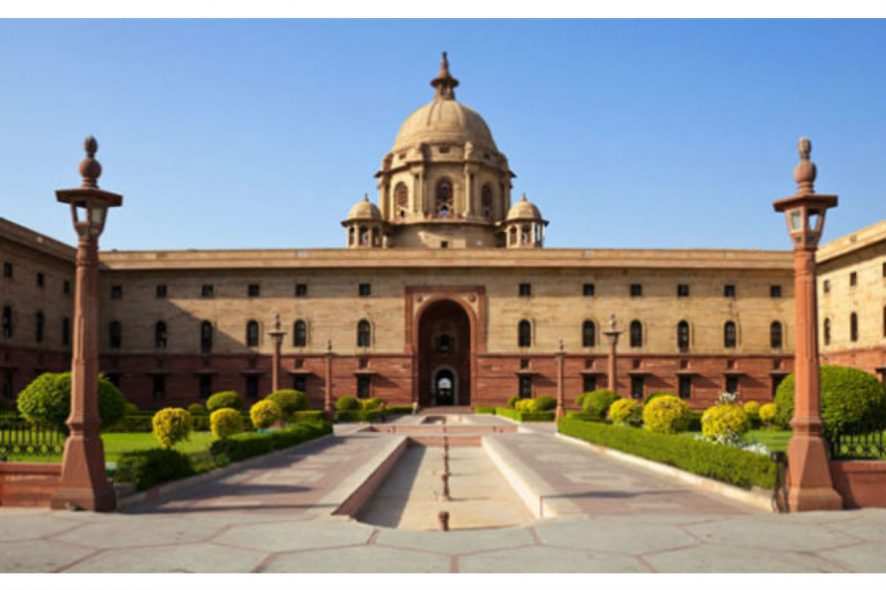Cabinet has approved the proposal for conducting the Census of India 2021 at a cost of Rs 8,754.23 crore and updation of National Population Register (NPR) at a cost of Rs 3,941.35 crore.
Census of India will cover the entire population in the country while NPR will also cover all the population except in the state of Assam.
Details:
- The Indian Census is largest administrative and statistical exercise in the world. The next decennial Census is due in 2021 and would be conducted in two phases:
- House listing and Housing Census – April to September, 2020 and
- Population Enumeration – 9th February to 28th February, 2021.
The National Population Register (NPR) will also be updated along with House listing and Housing Census except in Assam.
- 30 lakh field functionaries will complete this gigantic exercise of national importance, up from 28 lakh in 2011.
- Use of mobile app for data collection and the Central portal for monitoring purpose will ensure early release of Census data with improved quality.
- Data dissemination will be much better and in a user-friendly way so that all the queries on required parameters for policy making will be made available on the click of a button.
- Census-as-a-service (CaaS) will deliver on-demand data to ministries in a clean, machine-readable and actionable format.
Implementation strategy and targets:
- The Census process involves visiting each and every household and canvassing separate questionnaires for House listing and Housing Census and Population Enumeration.
- The enumerators, generally government teachers and appointed by the State Governments, will be doing the work of NPR along with the Census in addition to their regular duties.
- Other Census functionaries at Sub-district, District and State levels will also be appointed by the State/District Administration.
- New initiatives taken for the Census 2021 are:
i. Use of Mobile App for the first time for data collection.
ii. Census Monitoring & Management Portal as a single source for all officers/ officials involved in Census activities to provide multi-language support.
iii. Facility of online self-enumeration for public during the Population Enumeration phase. Code Directory to record the descriptive responses saving time in processing of data.
iv. Transfer of honorarium etc. to the Census functionaries for the Census & NPR related work directly to their bank accounts using Public Financial Management System (PFMS) and Direct Benefit Transfer (DBT) covering more than 60% of the total expenditure.
v. Qualitative training to 30 lakh field functionaries and utilising services of national/state level training institutes to prepare national and state-level trainers.
Background:
Decennial Population Census is being conducted in India synchronously since 1872 without break. Census 2021 will be the 16th Census in the country and 8th after independence. Census is the biggest source of primary data at village, town and ward level providing micro-level data on various parameters including Housing Condition; Amenities & Assets, Demography, Religion, SC & ST, Language, Literacy & Education, Economic Activity, Migration and Fertility. The Census Act, 1948 and the Census Rules, 1990 provide the legal framework for the conduct of the Census.
The National Population Register (NPR) was prepared in 2010 under the provisions of the Citizenship Act, 1955 and Citizenship Rules, 2003, which was subsequently updated in 2015 by seeding it with Aadhaar.
[Source: PIB]
Understand the meaning of the National Population Register:
The National Population Register (NPR) is a Register of the usual residents of the country. It is being prepared at the local (Village/sub-Town), sub-District, District, State and National level under provisions of the Citizenship Act 1955 and the Citizenship (Registration of Citizens and Issue of National Identity Cards) Rules, 2003. It is mandatory for every usual resident of India to register in the NPR. A usual resident is defined for the purposes of NPR as a person who has resided in a local area for the past 6 months or more or a person who intends to reside in that area for the next 6 months or more.
The objective of the NPR is to create a comprehensive identity database of every usual resident in the country. The database would contain demographic as well as biometric particulars.
|
The following demographic details of every individual are required for every usual resident:
|
|
The data for National Population Register was collected in 2010 alongwith the houselisting phase of Census of India 2011. The updation of this data was done during 2015 by conducting door to door survey. The digitisation of the updated information has been completed. Now it has been decided to update the National Population Register along with the Houselisting phase of Census 2021 from April to September 2020 in all the States/UTs except Assam. Gazette notification to this effect has already been published by the Central Government.







